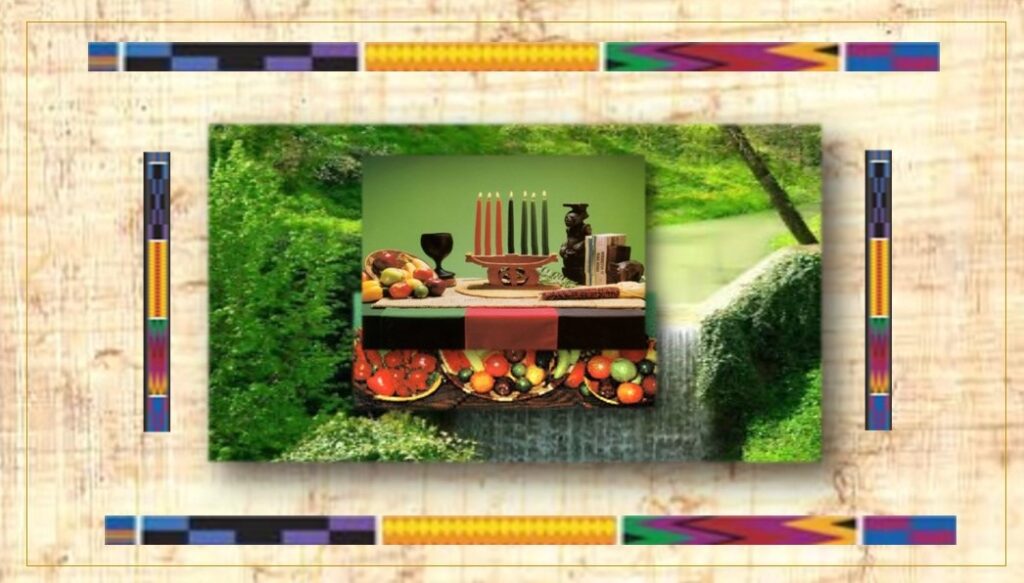
KWANZAA is an African American and pan-African holiday which celebrates family, community and culture. It is based on African first harvest celebrations organized around five fundamental kinds of activities: ingathering of the people; special reverence for the creator and creation; commemoration of the past; recommitment to the highest cultural values; and celebration of the Good.
Building on this ancient tradition, Dr. Maulana Karenga, professor and chair, Department of Africana Studies, CSULB, created Kwanzaa in 1966 as an act of cultural recovery and reconstruction. A seven-day holiday, Kwanzaa is celebrated from December 26 to January 1 and is structured around seven core communitarian African values, the Nguzo Saba (The Seven Principles) which are directed toward reinforcing family, community and culture.
The Nguzo Saba, The Seven Principles, are:
Umoja (Unity), Kujichagulia (Self-Determination), Ujima (Collective Work and Responsibility), Ujamaa (Cooperative Economics), Nia (Purpose), Kuumba (Creativity), and Imani (Faith).